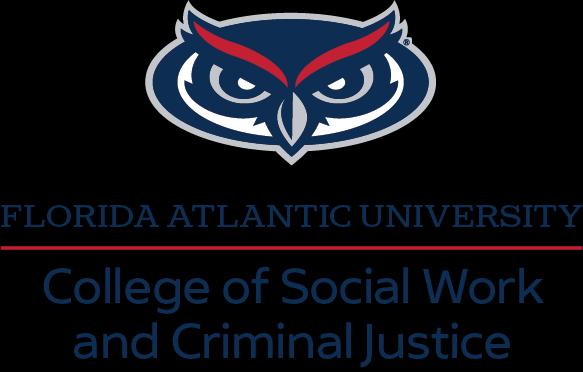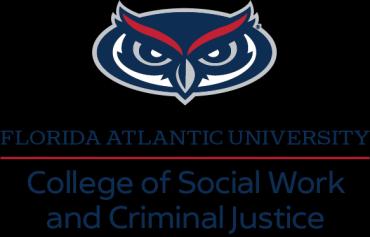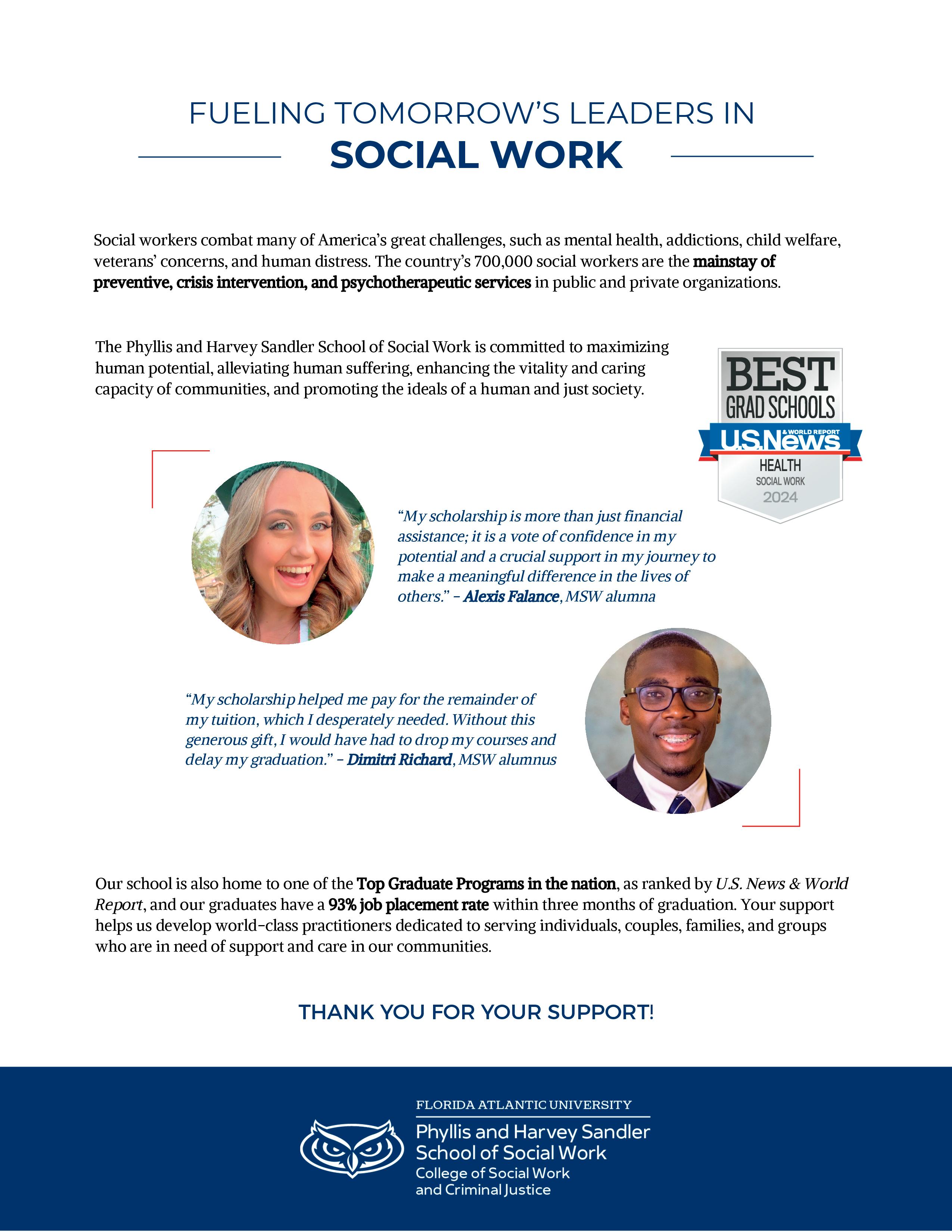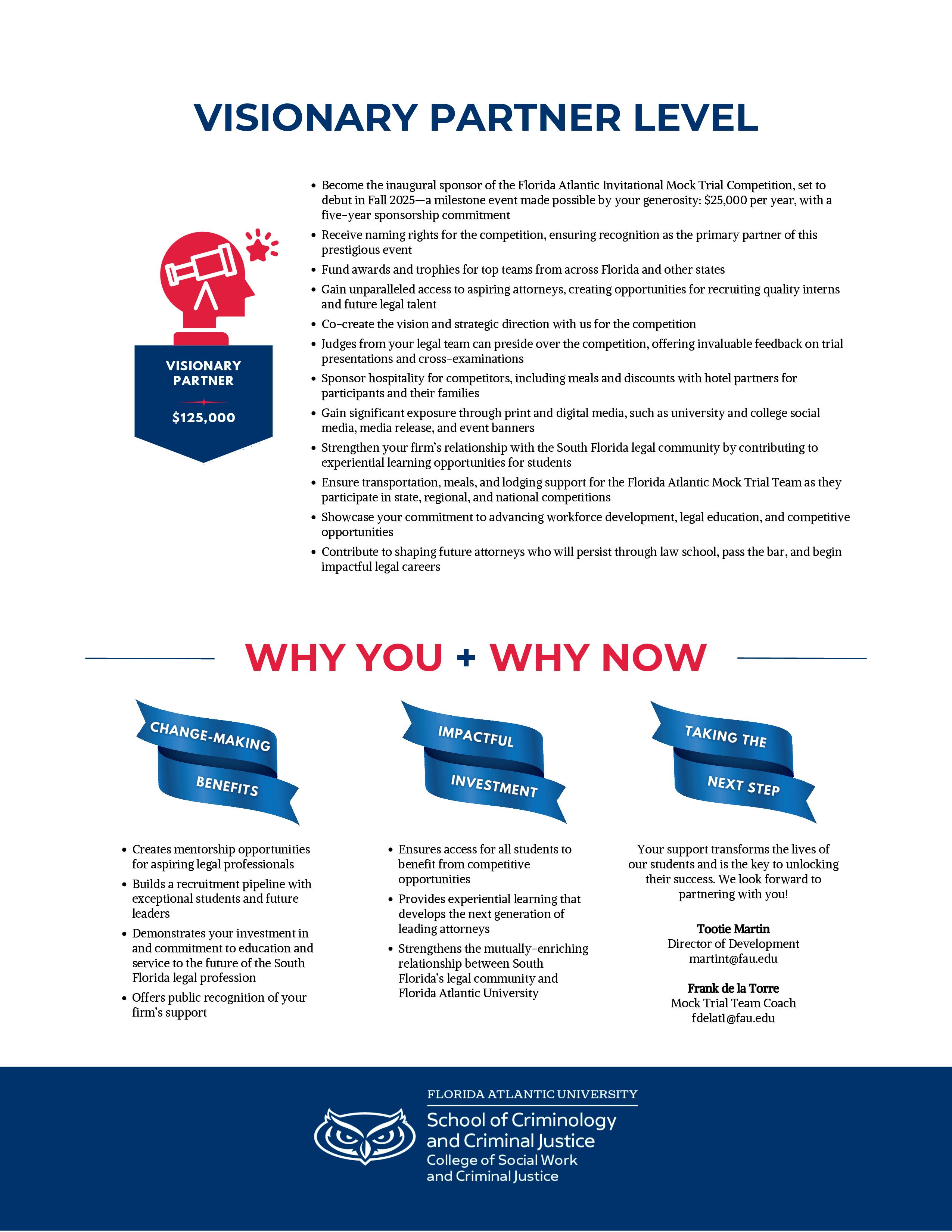
PHILANTHROPIC ADVISORY BOARD BY-LAWS
November 2024
I. NAME:
This body will be known as the College of Social Work and Criminal Justice Philanthropic Advisory Board (“PAB”) at Florida Atlantic University (“University”).
II. OBJECTIVE:
The College of Social Work and Criminal Justice (“College”) acknowledges and appreciates the continuous interest and commitment demonstrated by industry, government, and alumni in social work and criminal justice education. The PAB is focused on further developing and enhancing the programs and reputation of the College.
III. MISSION:
The mission of the PAB is to provide advice, counsel, and philanthropic support to the College and the Dean to enhance the quality, reputation, and philanthropic/financial strength of the College, as well as to support its students, faculty, staff, alumni, community partners, and programs in serving the needs of the community.
PAB members are driven to serve the public good and believe that positive change is rooted in relentless compassion. They also share a deep-rooted belief in the crucial role that the College plays in shaping a better world. The PAB advises the Dean, administration, and faculty and assists in cultivating and sustaining the resources and public support necessary to further excellence in education, research, and community engagement.
IV. PURPOSE:
Individually and collectively, the members of the PAB serve as ambassadors for the College within the community and keep the College informed of the community’s needs and interests. The PAB’s advocacy aims to advance philanthropic commitment and community engagement and to articulate the community's current and emerging interests to the College.
The specific purposes of the PAB are as follows:
a) To assist the Dean and administration in the identification, cultivation, solicitation, and stewardship of individual, corporate, and philanthropic support in accordance with the Dean’s strategic goals for the College.
b) To promote the College by building important ties and connections to local, regional, and state policymakers and to business, health, and the broader communities in coordination with the Dean, Director of Development, and Communications team.
c) To elevate the visibility of the College through the annual hosting of events and/or purchasing tickets/tables to host the Dean, administration, faculty, students, alumni, and/or community partners at strategic community charitable events throughout the season.
d) To assist in the promotion of local, regional, and national recognition of the College.
e) To provide insights to help inform the ongoing strategic planning process of the College.
f) To promote the College asan institution and place thegood of theCollege above any self-interests.
g) To enhance resource development and fundraising in support of the College’s strategic priorities, including community-based research, interdisciplinary education, and training in the social work and criminal justice professions through scholarships, sponsorships, and supporting community relations.
h) To encourage philanthropy in support of excellence, innovation, education, research, and community wellness in alignment with the College’s mission
i) To expand exposure to the impact donors can make by partnering with the College in its mission.
j) To raise awareness of the wide range of giving options available in the College, including naming opportunities, endowments, professorships, donor-advised funds, student scholarships, student assistantships in teaching or research, conference sponsorships, and planned giving, among others.
V. GOVERNANCE:
The College is an academic unit of the University. It is subject to the rules and regulations pertaining thereto, including those set forth by the State University System (SUS) and the Florida Atlantic University Foundation. The PAB is a body of unpaid volunteers who assist theDeanin fulfillingthemission of the College and the purposes outlined above.
3 | Page
VI. MEMBERSHIP AND TERMS OF SERVICE:
A. The PAB shall consist of individuals with diverse backgrounds and a wide range of professional and technical expertise as business and community leaders who have a sincere interest in the College and are devoted to excellence and innovation in academia and research.
Membership to the PAB will be extended by theDean to public-spirited individuals who are influencers, thought-leaders, and philanthropists with demonstrated leadership in their respective fields, selected from healthcare, medicine, law enforcement, business, industry, governmental and non-governmental organizations, who hold (or have held) senior management positions (e.g. CEO, president, vice president, director, business owner, etc.) or business professional positions in their organizations and demonstrate a philanthropic commitment to the College and a strong interest in social work and criminal justice-related education, community relations, and scientific research. It is expected that all PAB members will have both expertise and interest in contributing advice and counsel on issues as well as attending and participating actively in PAB meetings.
University employees may not serve on the PAB unless special circumstances warrant such an engagement, consistent with University policy. The College’s Director of Development shall serve as a special advisor to the PAB. Other individuals may be appointed by the Dean as necessary and appropriate to serve in an advisory capacity to the PAB.
B. Prospective candidates for membership on the PAB shall be identified by the Dean. After appropriate vetting, the candidates may be officially invited to serve on the PAB by the Dean. The maximum number of members on the PAB will be 15.
C. Newly appointed members shall begin theirterm of office with the first regular meeting of the PAB following their appointment. Regular members shall have full voting privileges.
D. The membership term to serve on the PAB is three (3) years.
1) To provide for continuity on the PAB, original appointments may be for one (1), two (2), or three (3) years to create staggered terms.
2) Members who agree to continue to serve may be re-appointed by the Dean for up to a maximum of three (3) full terms of membership and, if the member’s initial term was for less than two (2) years, for the additional time of the member’s initial term. After this point, a member shall remain off the PAB for a period of one (1) year before being eligible for re-appointment, subject to the terms herein.
3) Members may resign at any time by tendering a written resignation to the Dean.
4) Members and officers of the PAB serve at the pleasure of the Dean and may be removed from the PAB at any time and for any reason at the discretion of the Dean after consultation with the Chair.
E. PAB members are expected to actively participate in PAB activities, including by attending College events and attending PAB meetings, as described further below.
F. PAB members are expected to adviseand assist the Dean in securingannual and major gift support and other external funding for programs and College initiatives.
G. PAB members are expected to advise and assist in efforts to involve the broader community in the programs and activities of the College.
H. Each PAB member shall make a philanthropic commitment to the College as follows:
1) Each member should provide an annual contribution to support the PAB itself and for discretionary use as directed in agreement by the Dean and the PAB. The threshold amount shall be reviewed annually, determined by the PAB via a majority vote, and approved by the Dean. This contribution may be paid in single or multiple installments. The current annual contribution is a minimum of $5,000.
2) Donating and/or raising an additional $15,000 annual contribution (personally given, raised, or a combination) is encouraged, and it will be used to support the College's strategic priorities.
3) For those PAB members who have already made significant gifts, pledges, or planned gifts to the College, the Chair and/or Dean may waive or modify the above requirements.
I. Each PAB member shall participate in College and PAB activities as follows:
1) Participation of no less than 20 hours annually in activities in support of the College and/or the PAB, including hosting/participating in cultivation events, coordinating College speaking opportunities in communities and strategic venues in coordination with the College’s Dean and Director of Development, and attending annual events (e.g., Heart of Social Work event, etc.).
2) Attendance at no less than 50% of the PAB and any applicable committee meetings annually.
3) Assisting the administration and/or appointed faculty designee, Director, Chair, Director of Development, and the Dean in securing donations through contacts and breakfast/lunch/dinner meetings and/or fundraising events with potential friends of the College. Failure to fulfill the participation, attendance, and philanthropic requirements herein shall subject the member to removal from the PAB by the Dean after consultation with the Chair.
J. PAB members shall serve without compensation and shall not be reimbursed for costs or expenses, including without limitation travel expenses unless specifically authorized in writing by the University. PAB members may not use the University logos and trademarks for business cards, letterheads, emails, or any other purposes unless expressly authorized by the provost or designee in writing.
VII. LEADERSHIP/OFFICERS:
A. The officers of the PAB shall consist of a Chair, Vice-Chair, and Secretary, all of whom are nominated by the Dean. Officers may be removed from office at any time and for any reason at the discretion of the Dean.
B. The Chair shall be nominated by the Dean to serve a three (3)-year term, subject to approval by the PAB. The Chair may serve up to two (2) additional three (3)-year terms under the same nomination and approval process After this point, the Chair may not serve as the Chair for a period of one (1) year to become eligible for re-appointment, subject to the terms herein.
C. The Chair of the PAB shall preside at all PAB meetings, coordinate the PAB annual meeting schedule, administer the by-laws, appoint all committee members, perform development and public relations duties as required by the Dean, and represent the strategic goals of the Dean and College. The Chair of the PAB is responsible for developing the agenda for the PAB meetings with the advice of the Dean and the
College’s Director of Development. The agenda shall be distributed to all members of the PAB no fewer than seven (7) days prior to a regular meeting.
D. The Dean will nominate the PAB Vice-Chair, subject to the approval of the PAB.
E. The Vice-Chair shall perform development and public relations duties in coordination with the Chair and represent the College's strategic goals. The Vice-Chair shall serve in the absence of the Chair, with the consent of the Dean.
F. Other than the Chair, as described above, officers on the PAB shall serve a three (3)year term and may be re-nominated and approved for two (2) additional three (3)-year terms. After this point, the officer may not serve as an officer on the PAB for one (1) year to become eligible for re-appointment, subject to the terms herein.
VIII. PAB COMMITTEES:
A. The PAB may create one or more PAB committee(s). The PAB committee(s) shall normally consist of the Committee Chair and other members appointed by the PAB Chair with the consent of the Dean. The PAB Committee(s) may address issues that include, but are not limited to, the following:
● Undergraduate Education
o Alumni Involvement
o Corporate Collaboration
o Government Partnership
o Community Relations
o Academic program relevance to the profession
o Financial Support
o Professional Development Programs
o Research and Innovation
● Graduate Education and Research
o Alumni Involvement
o Corporate Collaboration
o Government Partnership
o Community Relations
o Academic program relevance to the profession
o Financial Support
o Professional Development Programs
o Research and Innovation
● Community Engagement
o Community Relations
o Community Awareness Events
o Municipal Relations
o Special Events
o PAB Member/Guest Events
● Resource Enhancement
o Fundraising Events
o Development Activities
o Philanthropic Networking
o Corporate Collaboration
● PAB Administration
o Bylaws/Guidelines Review
o Membership
o Strategic Planning
B. If created, each PAB Committee shall meet at least two (2) times during each year. When creating a PAB Committee, the PAB will establish the charge of the committee. Meetings of the PAB Committee shall occur prior to a regular PAB meeting. If set forth in the charge for a PAB Committee, a committee may also create special committees as necessary for fulfilling the committee’s responsibilities.
C. If a position on a PAB Committee becomes vacant mid-term, the Committee Chair may appoint an interim member to fill the remainder of the term. If the office of the Committee Chair becomes vacant mid-term, the PAB Chair will appoint an interim Committee Chair to fill the remainder of the term, in consultation with and with the consent of the Dean.
D. The Committee Chairs shall be appointed by the PAB Chair, in consultation with and with the consent of the Dean, to be responsible for defined components of the PAB's mission. The Committee Chairs shall facilitate and organize meetings, accomplish goals, and report committee findings.
IX. PAB MEETINGS:
A. Notice of regular PAB meetings shall be given by e-mail or phone to each PAB member at least seven (7) days prior to the meeting date. The PAB shall meet at least two (2) times a year, with additional committee meetings and special events as needed. The PAB shall generally hold triannual meetings during the calendar year, during which members may elect to participate in person or by telephone or video conference.
B. Special meetings may be called by the Chair (or, in the absence of the Chair, the ViceChair), or the Dean. Notice must be given at least three (3) days prior to the date of the special meeting.
C. One-half of the membership of the PAB shall constitute a quorum. Participants by conference call shall be included in the quorum count.
D. Invited guests (e.g., College faculty) may attend the meetings of the PAB and may participate in the discussion but may not vote. Members may not send someone to represent them in their absence.
E. Minutes of the PAB meeting shall be distributed to members after each meeting and voted on/approved at the next regular PAB meeting. At least one permanent file of the minutes shall be maintained in the Office of the Dean of the College.
F. All motions and recommendations submitted to the PAB for approval shall require a vote of more than 50% of the quorum in order for the motion to pass or the recommendation to be adopted.
X. AUTHORITY:
The Authority of the PAB is strictly advisory to the College. The PAB shall not have any independent fiscal, contractual, or policy authority. The decision to act on any PAB discussion or idea rests solely with the College and/or University.
XI. CONFLICT OF INTEREST:
PAB members are subject to theFlorida Codeof Ethicsfor Public Officers, Chapter112, Florida Statutes, and must disclose any conflicts they may have to the Chair and the Dean. Unless the PAB waives the conflict and such waiver is permissible under Chapter 112, the PAB member with a conflict shall not take part in any discussion or vote concerning the matter giving rise to the conflict.
XII. AMENDMENTS:
The Dean, after consultation with the Chair, may propose amendments to these bylaws, subject to review by the Office of the General Counsel and final approval by the Provost or designee.
XIII. THE DEAN’S COMMITMENT:
The Dean deeply values the commitment being made by each PAB member. The Dean commits to use their time wisely, inform and educate each PAB member about funding and other priorities, inspire members to be proud of their involvement with the College, and establish a meaningful partnership with each PAB member.
Reviewed/Approved:
Dean: ____________________________________________ Date: ___________________
General Counsel’s Office: ____________________________
Provost: __________________________________________
PAB Member:___________________________________
Date: ___________________
Date: ___________________
Date:__________________






